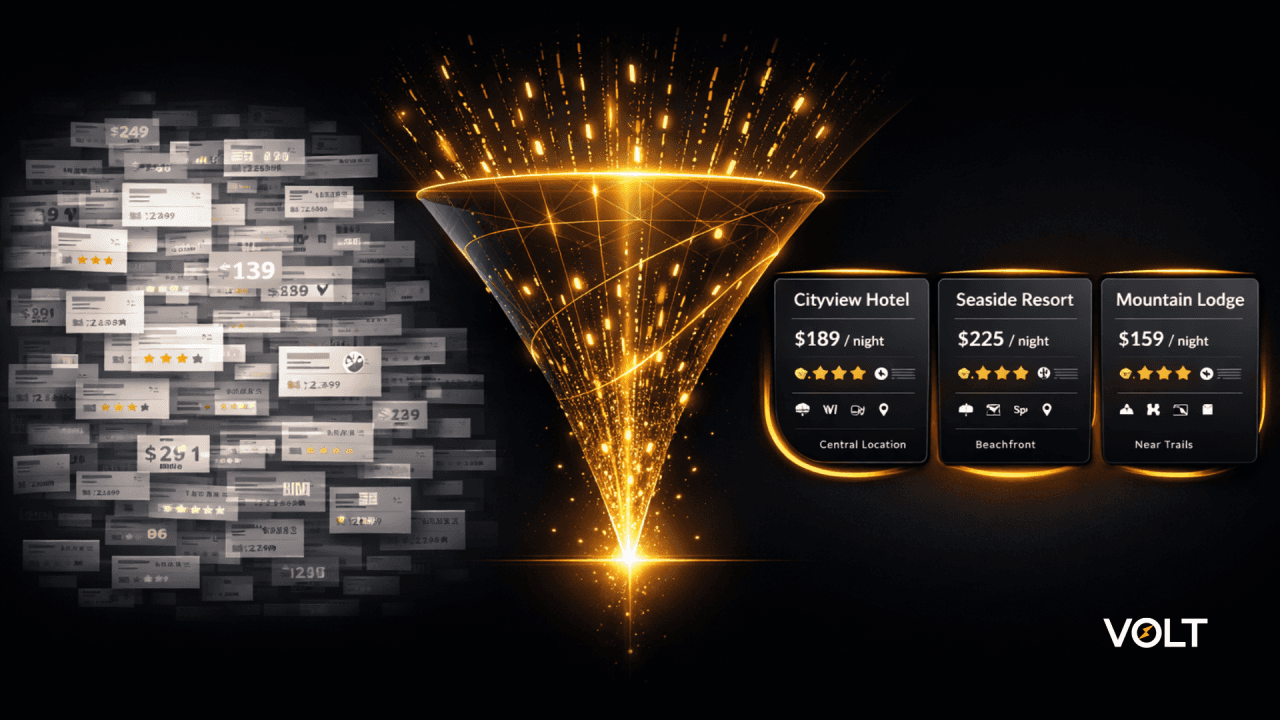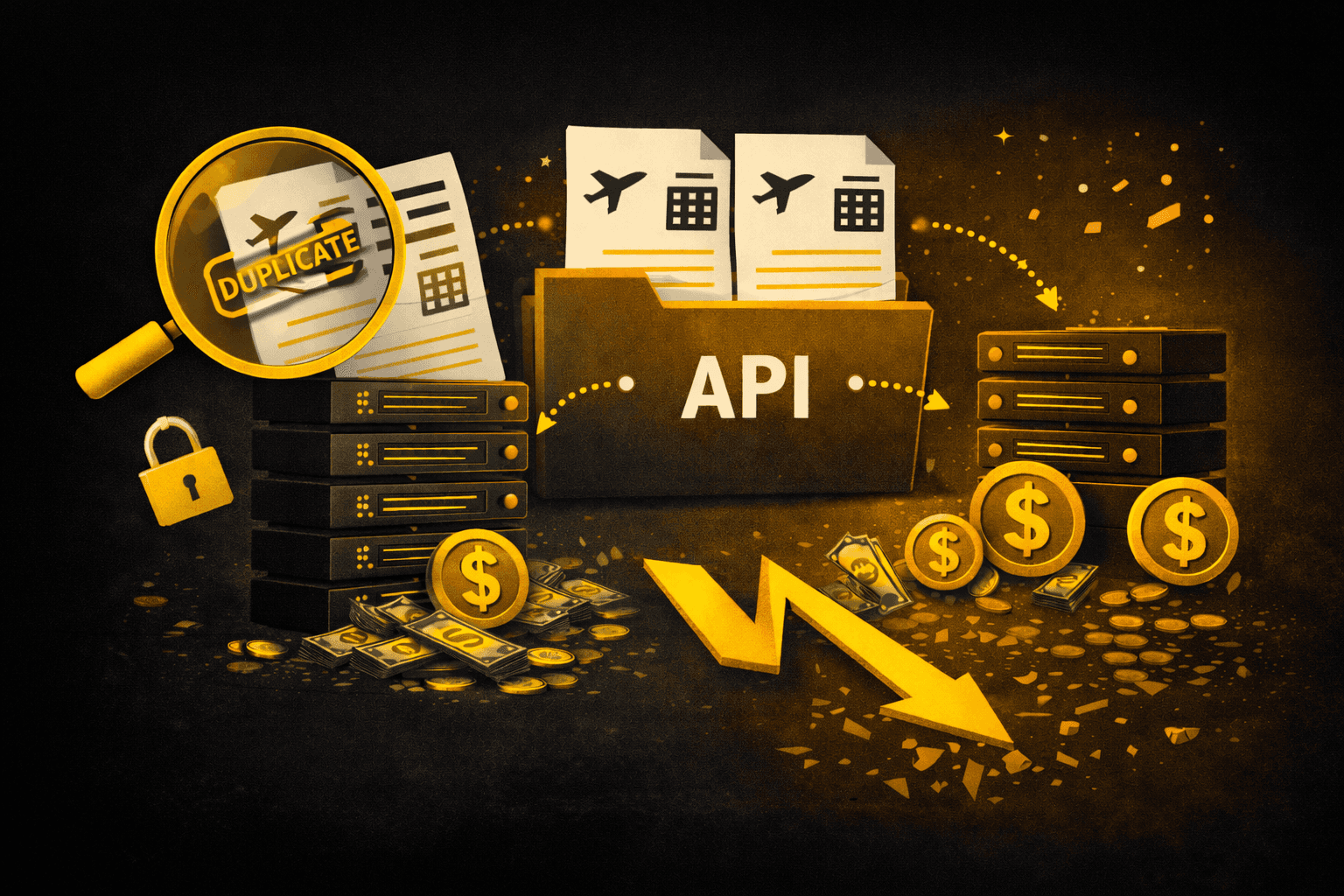Hotel APIs in Action: Case Studies of Increased Revenue and Efficiency
The hospitality industry processes billions of data points every second. From real-time inventory synchronization and dynamic pricing adjustments to guest preference tracking and payment processing, this continuous flow of information represents transformative potential for hotels ready to embrace API technology. With 83% of hotel investors describing the ROI of revenue management technology as high or very high, properties leveraging API integrations are revolutionizing how guests experience hospitality while achieving measurable business results.
The API Revolution is Here
The scale of transformation is remarkable: major hotel chains manage vast amounts of data in real-time through APIs that integrate with property management systems (PMS), revenue management systems (RMS), and channel managers. With ADR projected to grow by 4.9% and RevPAR expected to increase globally in 2024, the demand for seamless technological integration has never been greater.
Modern hotels operate in an ecosystem where APIs allow OTAs to interact directly with hotel management systems, central reservation systems, or global distribution systems, providing live updates on room availability and pricing. This technological infrastructure creates unprecedented opportunities for revenue growth and operational excellence.
Four Critical API Categories Driving Success
Channel Management APIs form the distribution backbone, enabling real-time room inventory updates, rate management across different sales platforms, and availability synchronization to prevent overbooking. Hotels implementing these systems report significant efficiency gains and error reduction.
Payment Processing APIs encompass secure transaction handling and multi-currency support. These APIs use authentication methods such as API keys, OAuth tokens, and PCI-compliant security protocols to protect sensitive payment data.
Guest Experience APIs provide crucial personalization capabilities. CRM systems integrated via APIs provide insights based on past stays, enabling hotels to offer customized room settings or recommendations upon a guest's return.
Revenue Management APIs enable sophisticated pricing strategies. Dynamic pricing based on demand forecasting, yield management to maximize room revenue, and competitive rate analysis are key functionalities.
Advanced API Strategies Delivering Results
Dynamic Pricing and Revenue Optimization
A modern RMS continuously updates room rates in real time for all room types and days, ensuring hotels don't miss revenue opportunities. Hotels realistically see a 5% or more increase in room revenue, with some reporting improvements as high as 15%.
Seamless Distribution Management
APIs enable hotels to speed up the booking process, enhance the customer booking experience, and receive direct bookings through their PMS in real-time, reducing manual work and the risk of overbooking.
Proven Success Stories and ROI
Tailormade Hotels Achieves Remarkable Results
Tailormade Hotels, a Swiss hotel group with 13 properties, increased revenue by 22% while maintaining stable occupancy rates after implementing FLYR for Hospitality's revenue management system. The team achieved an impressive 9% increase in Average Daily Rate (ADR) within just two months, covering the system's cost for all properties for the entire year.
Revenue Manager Alex Löw noted: "FLYR for Hospitality allowed us to push the prices to a level where we never would have thought we could go". The swift ROI and improved efficiency allowed the company to focus on strategic tasks rather than manual pricing adjustments.
Omnia Travel Maximizes Distribution Revenue
Omnia Travel increased their distribution rate by 58% over the course of a year using Expedia Group's Rapid API. Their overall Rapid API bookings increased by 45% year-over-year thanks to high-quality global inventory, competitive rates, and reliable booking handling.
The travel agency leveraged differentiated rate types including:
Package rates offering savings when booking flights with hotels
Expedia business rates with business-friendly amenities and greater cancellation flexibility
B2B distribution rates offering higher margins while maintaining competitive pricing
Industry-Wide Impact
The U.S. hotel industry achieved a 4.8% year-over-year increase in RevPAR in 2023, exceeding projections by 1.5%. 83.9% of hotels surveyed are currently using a revenue management system, up from 82.3% in the previous year.
Businesses using revenue management tools experience 20 to 40 hours of time savings every month, allowing staff to focus on guest service and strategic initiatives rather than manual data entry.
Implementation Challenges and Solutions
Data Integration and Standards
Integration of APIs requires careful analysis of compatibility with hotel software including PMS, RMS, CRM, and channel managers. Success requires breaking down departmental silos and creating unified data platforms.
Technology and Expertise
Hotel tech spending continues to increase, with 60.7% of respondents spending more in 2023 compared to 2022, and 71.4% predicting continued increases over the next three years. Cloud-native solutions offer scalability while reducing infrastructure investment.
Organizational Transformation
The persistent challenge of staffing shortages leaves less time for hoteliers to dedicate to revenue management, making technology adoption crucial. More than half (57.1%) said revenue management was more important to their business than the previous year.
Future Trends Shaping Hotel APIs
Artificial Intelligence Integration is advancing rapidly. By deeply integrating artificial intelligence, hotels will improve the collection and interpretation of data analytics in real time. Advanced Revenue Management Systems offer real-time insights, demand forecasting, and room rate optimization.
Total Revenue Management expands beyond rooms. The concept of total revenue per available room (TRevPAR) is gaining traction, encompassing all revenue streams including food and beverage, spa services, parking, and event spaces.
Mobile and Cloud Technologies democratize access. Revenue management solutions now offer mobile apps and platforms that utilize cloud technology, improving efficiency and accessibility.
Your Implementation Roadmap
Ready to transform your property through API integration? Here's your strategic guide:
Immediate Actions (First 90 Days)
✓ Assess current systems - Audit existing technology stack and identify integration needs and opportunities
✓ Define success metrics - Establish baseline KPIs for RevPAR, ADR, and operational efficiency
✓ Select priority integration - For RMS users, automated pricing recommendations top the list of important features
✓ Choose technology partners - Evaluate vendors with proven API capabilities and hospitality expertise
Key Performance Indicators to Track
Revenue per available room (target: 5-15% improvement based on industry benchmarks)
Operational efficiency (20-40 hours monthly time savings)
Distribution costs (monitor commission rates and channel performance)
Guest satisfaction scores (track through integrated feedback systems)
Critical Success Factors
Starting with smaller pilot APIs allows testing before broader implementation. Properties following this approach see faster adoption and stronger ROI. With efficient onboarding and automation, teams can achieve ROI within just two months.
The Competitive Imperative
The hospitality industry stands at a technological crossroads where API adoption transitions from innovation to necessity. Online sales in the hotel segment will generate 80% of total revenue in 3 years, making seamless technological integration critical for survival.
The revenue management discipline continues to grow in importance, with respondents ranking it 4.8 out of 5 in terms of importance to their company. Properties embracing API ecosystems will define hospitality's future, while those maintaining manual processes risk obsolescence.
As connectivity demands and guest expectations continue rising, opportunities for API-driven innovation will exponentially expand. AI opens many possibilities, raising the bar on creativity, interactivity, engagement, and unlocking opportunities to increase conversion, win back business from OTAs, and maximize revenue.
Taking Action Today
The future belongs to properties transforming data connections into revenue opportunities, automation into exceptional service, and integration into competitive differentiation. With 83% of hotel investors describing high ROI from revenue management technology and documented case studies showing 20%+ revenue increases, the business case for hotel APIs has never been more compelling.
Of those not using an RMS, 33.3% are looking to invest in 2024, and 36% are looking to invest in the next two years. Your competitors are already automating their operations. The question isn't whether to implement hotel APIs, but how rapidly you can deploy capabilities to capture market share in an increasingly connected world.




